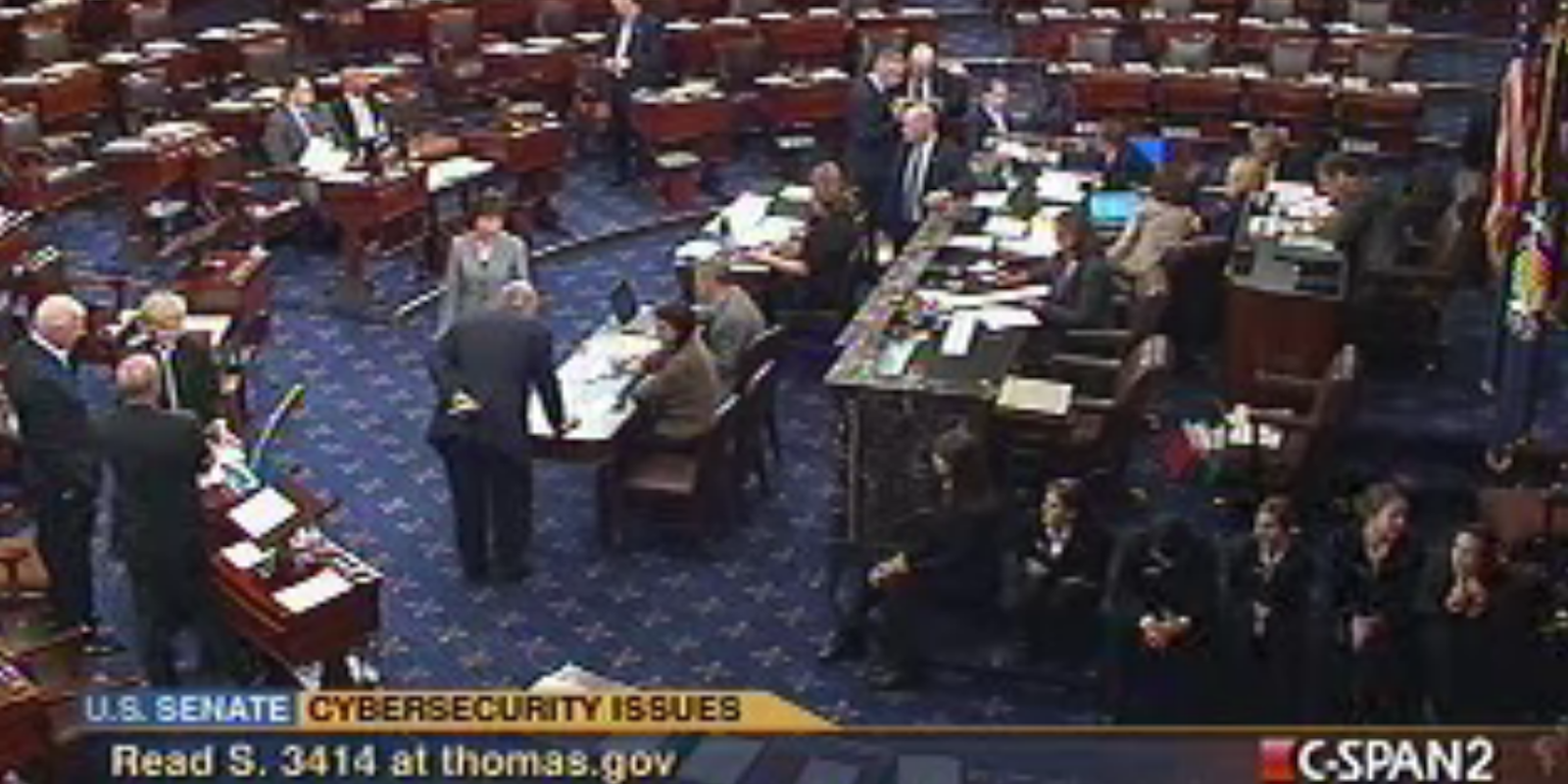The Cybersecurity Act of 2012 has failed. It was the one cybersecurity bill believed to have a legitimate chance to pass before Congress begins its summer recess next week. And it was the one cybersecurity bill that, if properly amended, some privacy advocates didn’t despise.
But it is no more. Hindered by significant Republican opposition, even though it was jointly authored by two non-Democrats, Joe Lieberman (I-CT) and Susan Collins (R-ME), the bill was defeated in a Senate vote Thursday morning by a vote of 52 to 46—split mostly along party lines.
Just a week earlier, it seemed that Lieberman had made enough compromises to his bill to attract the 60 votes necessary to pass the Senate.
But in the waning hours of the bill, the Chamber of Commerce ramped up its opposition. According to Lieberman, it cost him some crucial Republican votes. He said Tuesday that “[t]he big obstacle is still the opposition from the Chamber of Commerce.”
Majority Leader Harry Reid (D-NV), a supporter of Lieberman’s bill, condemned those senators who abandoned the bill in the past few days, saying they were “running like a pack of scared cats.”
As for the future of cybersecurity legislation, only a few things are clear. The first is that it’s likely that Congress won’t pass a cybersecurity bill this year. Congress’s summer recess starts this week, and it’s thought it will take up more urgent matters in the following months.
The second is that everyone in Washington seems convinced the U.S. needs some sort of cybersecurity legislation, even if they can’t agree on what form it should take. The two most prominent cybersecurity bills at the moment are both in the Senate: the Cyber Intelligence Security Protection Act (CISPA), which passed the House in April, and John McCain’s Secure IT Act.
But in the meantime, privacy advocates are claiming victory through Twitter.
“Victory,” tweeted the Electronic Frontier Foundation. “Thank you, everyone, for speaking out.”
“Your calls and emails made a difference!” posted Fight for the Future.
Photo via cspan.org


